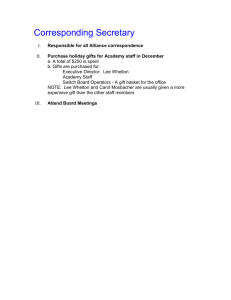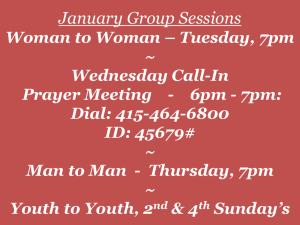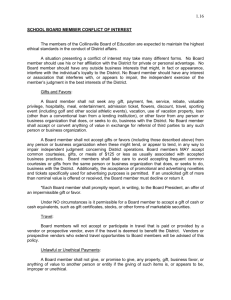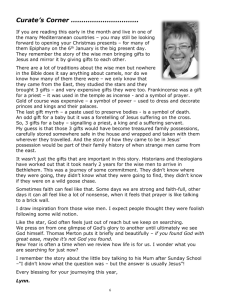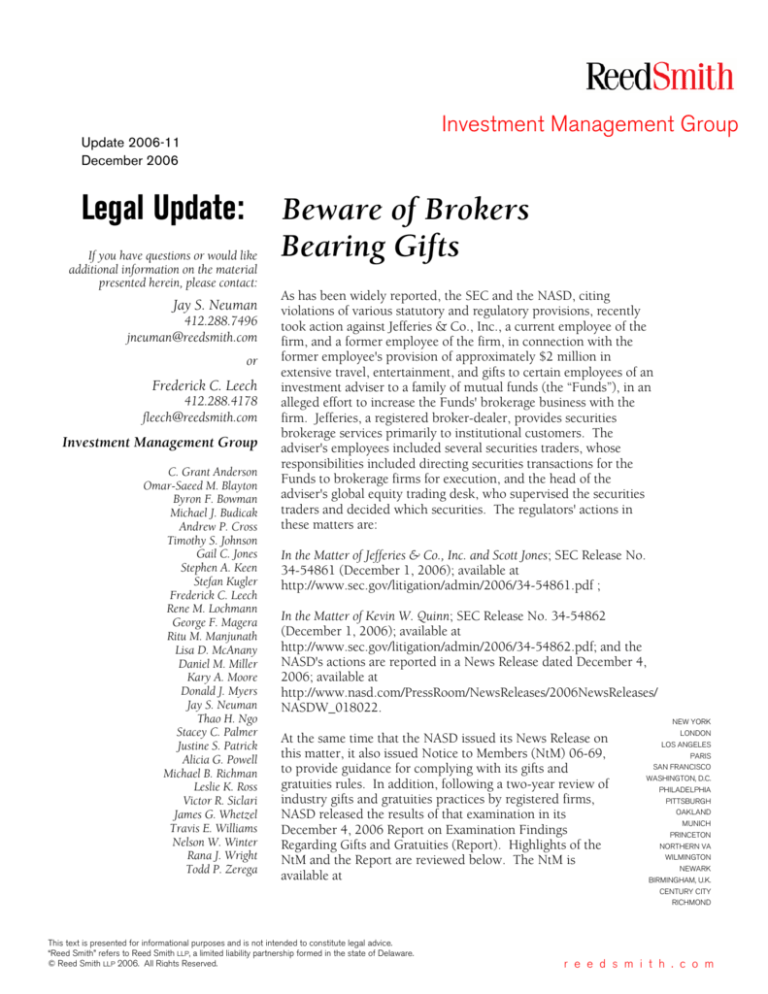
Investment Management Group
Update 2006-11
December 2006
Legal Update:
If you have questions or would like
additional information on the material
presented herein, please contact:
Jay S. Neuman
412.288.7496
jneuman@reedsmith.com
or
Frederick C. Leech
412.288.4178
fleech@reedsmith.com
Investment Management Group
C. Grant Anderson
Omar-Saeed M. Blayton
Byron F. Bowman
Michael J. Budicak
Andrew P. Cross
Timothy S. Johnson
Gail C. Jones
Stephen A. Keen
Stefan Kugler
Frederick C. Leech
Rene M. Lochmann
George F. Magera
Ritu M. Manjunath
Lisa D. McAnany
Daniel M. Miller
Kary A. Moore
Donald J. Myers
Jay S. Neuman
Thao H. Ngo
Stacey C. Palmer
Justine S. Patrick
Alicia G. Powell
Michael B. Richman
Leslie K. Ross
Victor R. Siclari
James G. Whetzel
Travis E. Williams
Nelson W. Winter
Rana J. Wright
Todd P. Zerega
Beware of Brokers
Bearing Gifts
As has been widely reported, the SEC and the NASD, citing
violations of various statutory and regulatory provisions, recently
took action against Jefferies & Co., Inc., a current employee of the
firm, and a former employee of the firm, in connection with the
former employee's provision of approximately $2 million in
extensive travel, entertainment, and gifts to certain employees of an
investment adviser to a family of mutual funds (the “Funds”), in an
alleged effort to increase the Funds' brokerage business with the
firm. Jefferies, a registered broker-dealer, provides securities
brokerage services primarily to institutional customers. The
adviser's employees included several securities traders, whose
responsibilities included directing securities transactions for the
Funds to brokerage firms for execution, and the head of the
adviser's global equity trading desk, who supervised the securities
traders and decided which securities. The regulators' actions in
these matters are:
In the Matter of Jefferies & Co., Inc. and Scott Jones; SEC Release No.
34-54861 (December 1, 2006); available at
http://www.sec.gov/litigation/admin/2006/34-54861.pdf ;
In the Matter of Kevin W. Quinn; SEC Release No. 34-54862
(December 1, 2006); available at
http://www.sec.gov/litigation/admin/2006/34-54862.pdf; and the
NASD's actions are reported in a News Release dated December 4,
2006; available at
http://www.nasd.com/PressRoom/NewsReleases/2006NewsReleases/
NASDW_018022.
At the same time that the NASD issued its News Release on
this matter, it also issued Notice to Members (NtM) 06-69,
to provide guidance for complying with its gifts and
gratuities rules. In addition, following a two-year review of
industry gifts and gratuities practices by registered firms,
NASD released the results of that examination in its
December 4, 2006 Report on Examination Findings
Regarding Gifts and Gratuities (Report). Highlights of the
NtM and the Report are reviewed below. The NtM is
available at
This text is presented for informational purposes and is not intended to constitute legal advice.
“Reed Smith” refers to Reed Smith LLP, a limited liability partnership formed in the state of Delaware.
© Reed Smith LLP 2006. All Rights Reserved.
NEW YORK
LONDON
LOS ANGELES
PARIS
SAN FRANCISCO
WASHINGTON, D.C.
PHILADELPHIA
PITTSBURGH
OAKLAND
MUNICH
PRINCETON
NORTHERN VA
WILMINGTON
NEWARK
BIRMINGHAM, U.K.
CENTURY CITY
RICHMOND
r e e d s m i t h . c o m
http://www.nasd.com/web/groups/rules_regs/documents/notice_to_m
embers/nasdw_018024.pdf; and the Report is available at
http://www.nasd.com/web/groups/rules_regs/documents/rules_regs/n
asdw_018025.pdf.
Background.
NASD Conduct Rule 3060 (the "gift rule") prohibits any member or
person associated with a member from giving, or permitting to be
given, anything of value in excess of $100 per individual, per year,
where such payment is in relation to the business of the recipient’s
employer. Rule 3060 also requires members to retain a separate
record of all payments or gratuities. NASD Conduct Rule 3010
requires firms to have systems and procedures reasonably designed to
achieve compliance with NASD Rules, including Rule 3060.
In an Interpretative Letter dated June 10, 1999, NASD stated that
Rule 3060 does not limit "ordinary and usual business entertainment"
(such as an occasional meal, sporting event, theater production, or
comparable entertainment event) so long as it is "neither so frequent
nor so extensive as to raise any question of propriety." However,
NASD has long taken the view that a member must attend an event
with the customer for the event to be deemed "business
entertainment" (and that transportation and lodging expenses
provided by a member in connection with an event are properly
deemed part of the business entertainment). Thus, for example,
when a firm provides a ticket to a client and an associated person
does not attend the event with the client, the ticket is deemed a gift
(rather than business entertainment) and therefore counts toward the
$100 limit of the gift rule.
Reed Smith LLP is a top-25
international law firm with 1,100
lawyers located in 13 United States
and four European cities. Upon
completion of a merger with
Richards Butler on January 1, 2007,
the firm will have nearly 1,400
attorneys, and its largest office will
be London. The integration will
double Reed Smith’s presence in
Paris and will add offices in Greece
and the Middle East. The firm
represents clients ranging from
Fortune 100 to mid-market and
emerging companies. They include
financial services firms, life sciences
companies, health care providers,
technology companies and
entrepreneurs, power generators
and suppliers, manufacturers, real
estate companies, universities, and
nonprofit organizations throughout
the world. For more information,
visit www.reedsmith.com.
NtM 06-69.
As a result of its recent review of gift and gratuity practices at
member firms, NASD became aware of several deficiencies in firms’
compliance procedures relating to the application of Rule 3060 (as
detailed in the Report and briefly reviewed below). To aid firms in
their compliance efforts, NASD issued this NtM, "which focuses on
some of the more common compliance weaknesses observed." The
NtM addresses the following six areas.
Personal Gifts/Exclusions. The prohibitions in Rule 3060 generally
do not apply to personal gifts (e.g., a wedding gift), provided that
these gifts are not “in relation to the business of the employer of the
recipient.” Members should consider a number of factors in making
this determination, including the nature of any pre-existing personal
or family relationship and who paid for the gift. When a firm directly
or indirectly bears the cost of a gift, NASD presumes the gift is in
relation to the business of the employer of the recipient. This
analysis is required in connection with all gifts; "firms should not
treat gifts given during the holiday season or for other life events as
personal in nature." In addition, the associated person who is
making a gift should not be authorized to determine whether such
-2-
gift is personal, rather than in relation to the business of the
recipient’s employer.
De minimis and Promotional Items. Rule 3060 (including the
recordkeeping provisions thereof) also does not apply to gifts of de
minimis value (e.g., pens, notepads, or "modest desk ornaments") or
to "promotional items of nominal value" that display the firm’s logo
(e.g., umbrellas, tote bags, or bobbleheads). "In order for a
promotional item to fall within this exclusion, its value must be
substantially below the $100 limit." Items valued in amounts above
or near $100 would not be considered nominal, notwithstanding the
presence of firm logos, and are not eligible for this exclusion. NASD
also generally does not apply the prohibition in Rule 3060 to
customary "decorative" items commemorating a business transaction
(e.g., Lucite tombstones, or plaques), even when such items have a
cost of more than $100. However, the restrictions of Rule 3060
would apply where the item is not "solely decorative," irrespective of
whether the item was intended to commemorate a business
transaction.
Aggregation of Gifts. To ensure compliance with the $100 per
individual recipient per year limit, firms must aggregate all gifts given
by the member and each associated person of the member to a
particular recipient over the course of "a year." In addition, each firm
must state in its procedures whether it is aggregating on a calendar
year, fiscal year, or a rolling basis beginning with the first gift to any
particular recipient.
Reed Smith LLP is a top-25
international law firm with 1,100
lawyers located in 13 United States
and four European cities. Upon
completion of a merger with
Richards Butler on January 1, 2007,
the firm will have nearly 1,400
attorneys, and its largest office will
be London. The integration will
double Reed Smith’s presence in
Paris and will add offices in Greece
and the Middle East. The firm
represents clients ranging from
Fortune 100 to mid-market and
emerging companies. They include
financial services firms, life sciences
companies, health care providers,
technology companies and
entrepreneurs, power generators
and suppliers, manufacturers, real
estate companies, universities, and
nonprofit organizations throughout
the world. For more information,
visit www.reedsmith.com.
Valuation of Gifts. In general, gifts should be valued at the higher
of cost or market value (exclusive of tax and delivery charges).
Tickets should be valued at the higher of cost or face value. For
example, if a member makes a gift of a ticket to a sporting event that
it procured at a premium "in the secondary market," the value of the
ticket would be the higher cost to the member, not its face value. If
gifts are given to multiple recipients, members should record the
names of each recipient and calculate and record the value of the gift
on a pro-rata per recipient basis. For example, a gift basket valued at
$250 delivered to an office of three individuals for the benefit of each
individual would be permissible under the Rule.
Gifts Incidental to Business Entertainment. There is no express
exclusion from Rule 3060 for gifts given during the course of
business entertainment and conferences. Thus, for example,
purchasing an umbrella during a round of golf would be considered a
gift. Firms must record these gifts, and include the value of such
gifts, as part of their Rule 3060 compliance procedures.
Supervision and Recordkeeping. Rule 3060 requires separate
recordkeeping of gifts and gratuities. Rule 3010 requires a firm to
have a supervisory system reasonably designed to achieve compliance
with NASD Rules, including Rule 3060. In order to meet these
-3-
standards, firms are required to have systems and procedures
reasonably designed to ensure that gifts subject to Rule 3060 are (i)
reported to the firm, (ii) reviewed for compliance with Rule 3060,
including aggregation as discussed above, and (iii) maintained in the
firm’s records.
The Report.
In late 2004, NASD requested information from over 40 member
firms engaged in institutional sales and trading in an effort to assess
compliance with Rule 3060, and the adequacy of members’ systems
and procedures to achieve compliance. The firms surveyed ranged in
size from fewer than 20 to over 24,000 registered representatives and
included local, regional, national, and multinational broker-dealers.
Information requested included a listing of gifts and entertainment
provided by the member firms; and policies and procedures in place
to ensure compliance with Rule 3060. The Report details NASD's
findings from the review, and provides additional background on
NASD's regulation of this area. In particular, it reviews aspects of
proposed interpretive material (IM) to Rule 3060, issued by NASD in
January 2006, to more explicitly outline the policies and procedures a
member must adopt in connection with its business entertainment
practices with employees of a customer. (See NtM 06-06; available at
http://www.nasd.com/web/groups/rules_regs/documents/notice_to_m
embers/nasdw_015876.pdf. On April 11, 2006, NASD filed IM-3060
with the SEC; See File No. SR-2006-044.)
Reed Smith LLP is a top-25
international law firm with 1,100
lawyers located in 13 United States
and four European cities. Upon
completion of a merger with
Richards Butler on January 1, 2007,
the firm will have nearly 1,400
attorneys, and its largest office will
be London. The integration will
double Reed Smith’s presence in
Paris and will add offices in Greece
and the Middle East. The firm
represents clients ranging from
Fortune 100 to mid-market and
emerging companies. They include
financial services firms, life sciences
companies, health care providers,
technology companies and
entrepreneurs, power generators
and suppliers, manufacturers, real
estate companies, universities, and
nonprofit organizations throughout
the world. For more information,
visit www.reedsmith.com.
The Report's "Overall Findings" were that many firms have not
instituted reasonably designed systems and procedures to achieve
compliance with the gift rule. Firms are not adequately reviewing for
compliance with the $100 limit on an aggregated basis, and firms’
systems are not adequate to ensure that all pertinent information
necessary to monitor and enforce compliance with Rule 3060 is
collected and kept in a centralized, easily accessible manner. It also
appears that many firms have focused their supervision of gifts and
entertainment on cost control rather than gift rule compliance.
Moreover, firms are not consistently identifying all recipients of gifts
and entertainment and assessing in the ordinary course of business
whether such activities (i) are consistent with regulatory
requirements, (ii) create the potential for conflicts of interest, or (iii)
are otherwise not in conformity with firms’ own policies and
procedures. The more specific findings included the following.
•
Most firms were not able to promptly comply with the NASD's
requests for information due to the fact that the requested
information was not easily accessible in the firms’ records.
•
In general, firms did not maintain adequate records in this area.
In general, the most common record-keeping system deficiencies
consisted of failures to:
-4-
Reed Smith LLP is a top-25
international law firm with 1,100
lawyers located in 13 United States
and four European cities. Upon
completion of a merger with
Richards Butler on January 1, 2007,
the firm will have nearly 1,400
attorneys, and its largest office will
be London. The integration will
double Reed Smith’s presence in
Paris and will add offices in Greece
and the Middle East. The firm
represents clients ranging from
Fortune 100 to mid-market and
emerging companies. They include
financial services firms, life sciences
companies, health care providers,
technology companies and
entrepreneurs, power generators
and suppliers, manufacturers, real
estate companies, universities, and
nonprofit organizations throughout
the world. For more information,
visit www.reedsmith.com.
o
maintain records of gifts and entertainment
aggregated by individual recipient;
o
require brokers to provide complete attendee
information, including whether the broker attended,
for all ticketed events; and
o
maintain a firm-wide, centralized record-keeping
system for all gifts and entertainment capable of
aggregating gifts and entertainment by recipient on
an annualized basis.
•
These record-keeping weaknesses highlighted the inadequacy of
the firms’ supervisory systems, since it was impossible to
adequately monitor and detect potential violations of the gift rule.
•
Although most firms had a written supervisory procedure that
prohibited giving gifts in excess of $100 per year, and
communicated this to their employees, nearly all firms lacked a
system to ensure that the information necessary to evaluate
whether a gift was violative was collected.
The Report's conclusion emphasizes that compliance in this area is
"essential," and that firms must increase their vigilance in this area to
detect and prevent potential violations. "To accomplish this goal,
firms must revisit their systems and procedures for achieving
compliance with Rule 3060 and identify deficiencies that may
currently exist. Proposed IM-3060, together with the guidance
provided Notice to Members 06-69, are valuable resources to
approach this endeavor and members are expected to take
appropriate remedial action to correct any deficiencies in their
systems and procedures that may currently exist."
By Jay Neuman. Mr. Neuman is a partner with Reed Smith’s Investment
Management Group.
-5-


